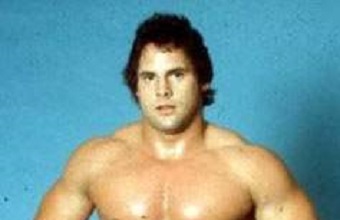Rick McGraw: A Wrestler’s Journey Remembered
In the tapestry of professional wrestling, some stories serve as poignant reminders of the highs, lows, and challenges faced by its performers. Rick McGraw, born Richard Henry Blood on May 11, 1955, embarked on a wrestling journey marked by athleticism, charisma, and the complexities of life in the industry. As we explore his career highlights, his final days, and the circumstances surrounding his passing, we remember Rick McGraw as a wrestler whose legacy continues to resonate with fans and wrestling enthusiasts.
Emergence of a Wrestling Talent
Rick McGraw’s journey into the world of professional wrestling began with a family legacy of athleticism and dedication. His father, professional wrestler Ricky Romero, served as an influence on his career choice. Debuting in the late 1970s, McGraw quickly established himself as a dynamic performer with a combination of charisma and athleticism.
McGraw’s in-ring style was marked by high-flying maneuvers and agility that captured the attention of fans. His persona resonated with audiences, making him a favorite among those who appreciated his natural charisma.
Memorable Matches and In-Ring Excellence
Rick McGraw’s wrestling career was punctuated by memorable matches and moments that showcased his in-ring excellence. His participation in the World Wrestling Federation (WWF) allowed him to compete against some of the industry’s top talents. His matches against wrestlers like “Mr. Wonderful” Paul Orndorff and “Rowdy” Roddy Piper demonstrated his ability to hold his own against formidable opponents.
McGraw’s athleticism and ability to connect with the audience made his matches stand out. His dedication to his craft and his willingness to put on entertaining performances endeared him to fans who appreciated his unique approach to wrestling.
Challenges and Final Days
As Rick McGraw’s wrestling journey progressed, he faced challenges both within and outside the ring. Despite his talent and popularity, he grappled with personal and health issues that impacted his career trajectory. His departure from the wrestling scene marked a turning point in his journey.
Tragically, on November 1, 1985, the wrestling community received the news of Rick McGraw’s passing. He was found dead in his home at the age of 30. The cause of death was attributed to heart failure brought on by acute intoxication of prescription drugs. The news of his death sent shockwaves through the industry, prompting an outpouring of grief from fans, colleagues, and fellow wrestlers who recognized his contributions to the sport.
Legacy of Athleticism and Charisma
Rick McGraw’s legacy endures through his athleticism, charisma, and the memorable matches he left behind. His dedication to his craft and his ability to engage the audience remain as testaments to his impact on the wrestling industry.
McGraw’s influence can be seen in the wrestlers who draw inspiration from his dynamic in-ring style and his natural charisma. His legacy also serves as a reminder of the challenges that can come with a life in the wrestling world and the importance of supporting performers’ overall well-being.
In Conclusion: A Wrestler Remembered
Rick McGraw’s wrestling journey was one of athleticism, charisma, and a legacy that continues to be celebrated by fans and wrestling enthusiasts. His matches, persona, and dedication to his craft are remembered by those who admire the contributions of wrestlers who bring a unique flair to the industry.
As fans remember Rick McGraw, they honor a wrestler whose story serves as a poignant reminder of the challenges faced by performers and the importance of addressing their well-being. His legacy prompts discussions about the complexities of life in the wrestling world and the industry’s responsibility to provide support to its members. Through it all, Rick McGraw’s legacy remains a testament to the enduring impact of those who contribute their talents to the world of wrestling.
